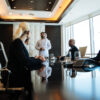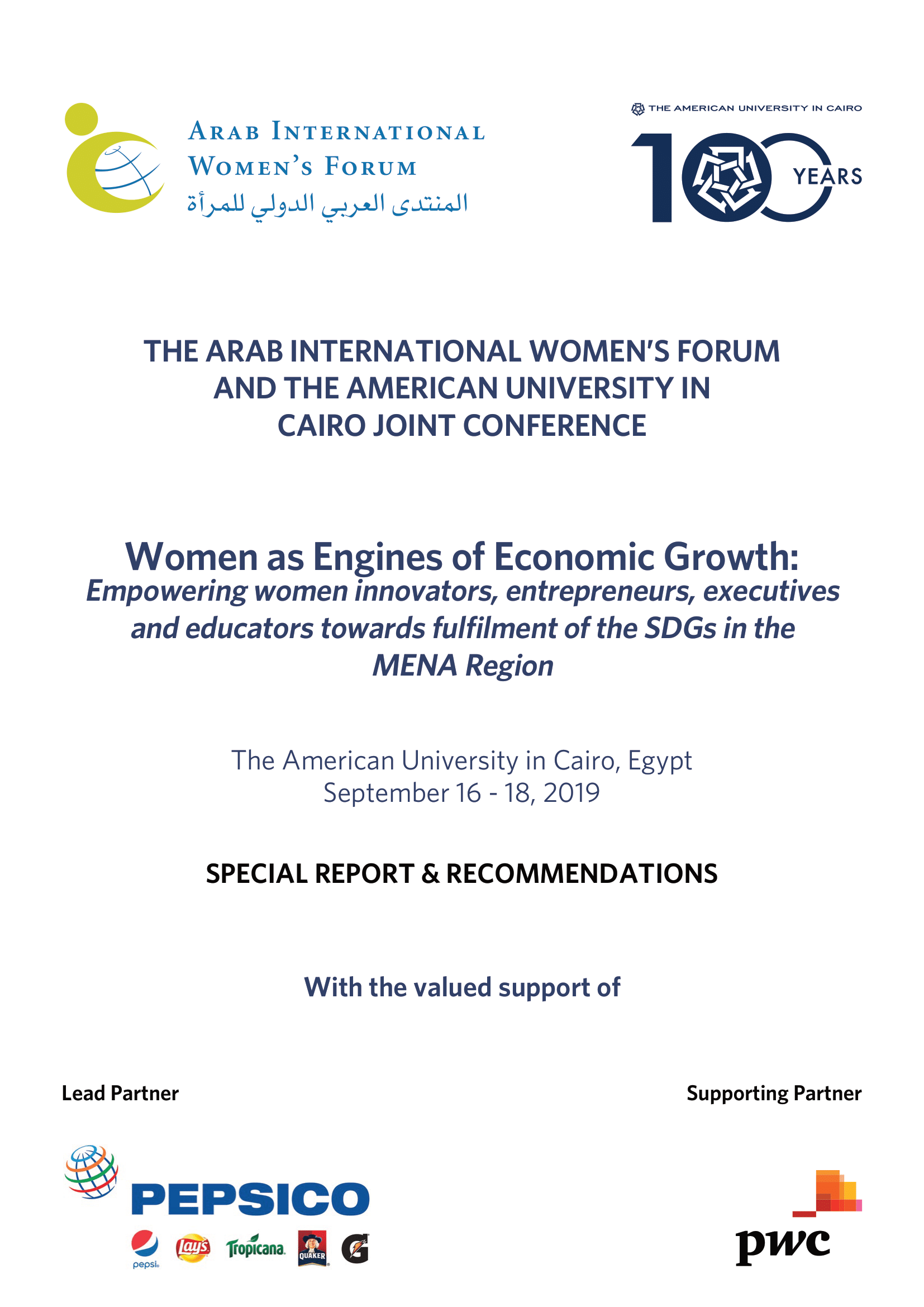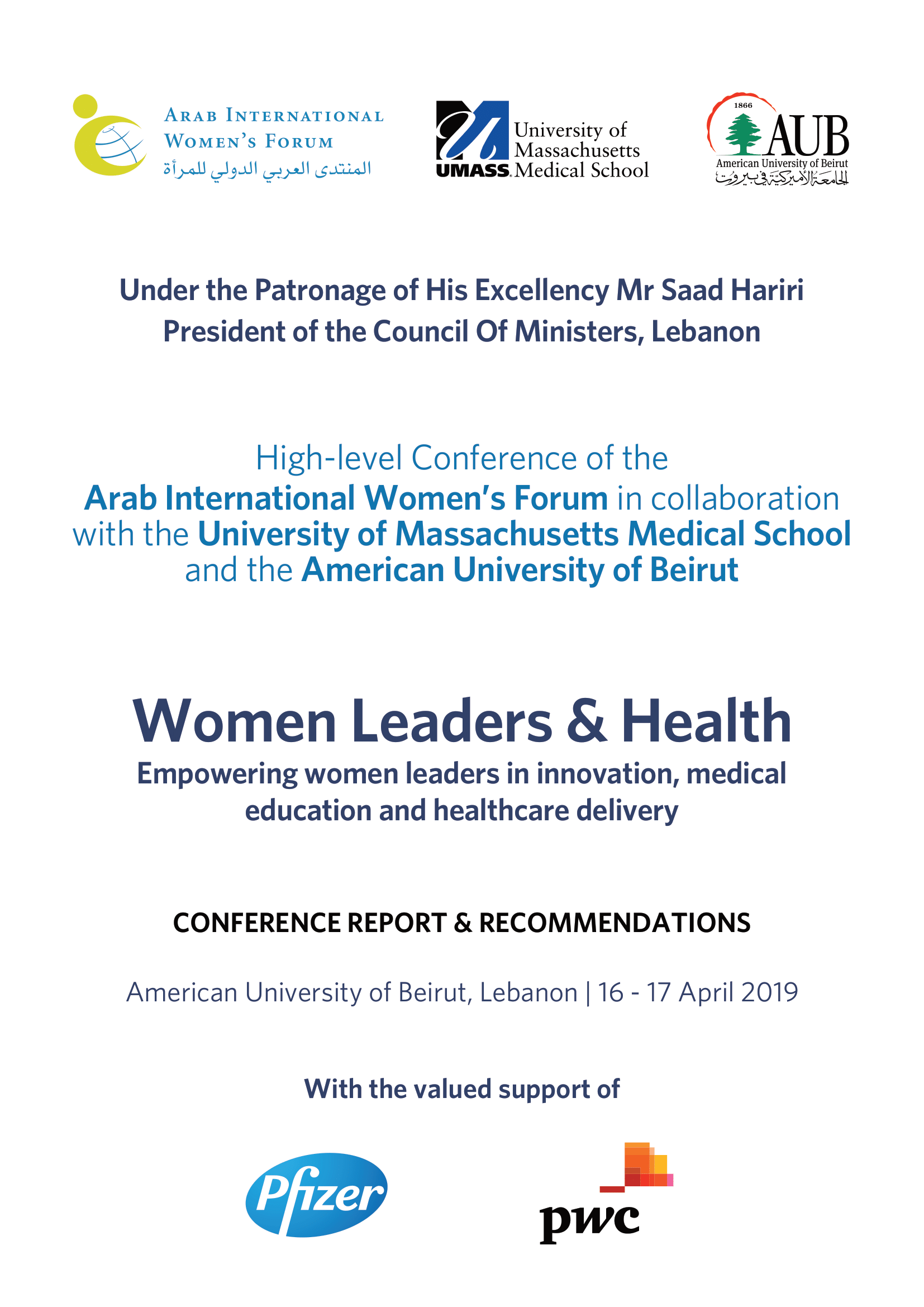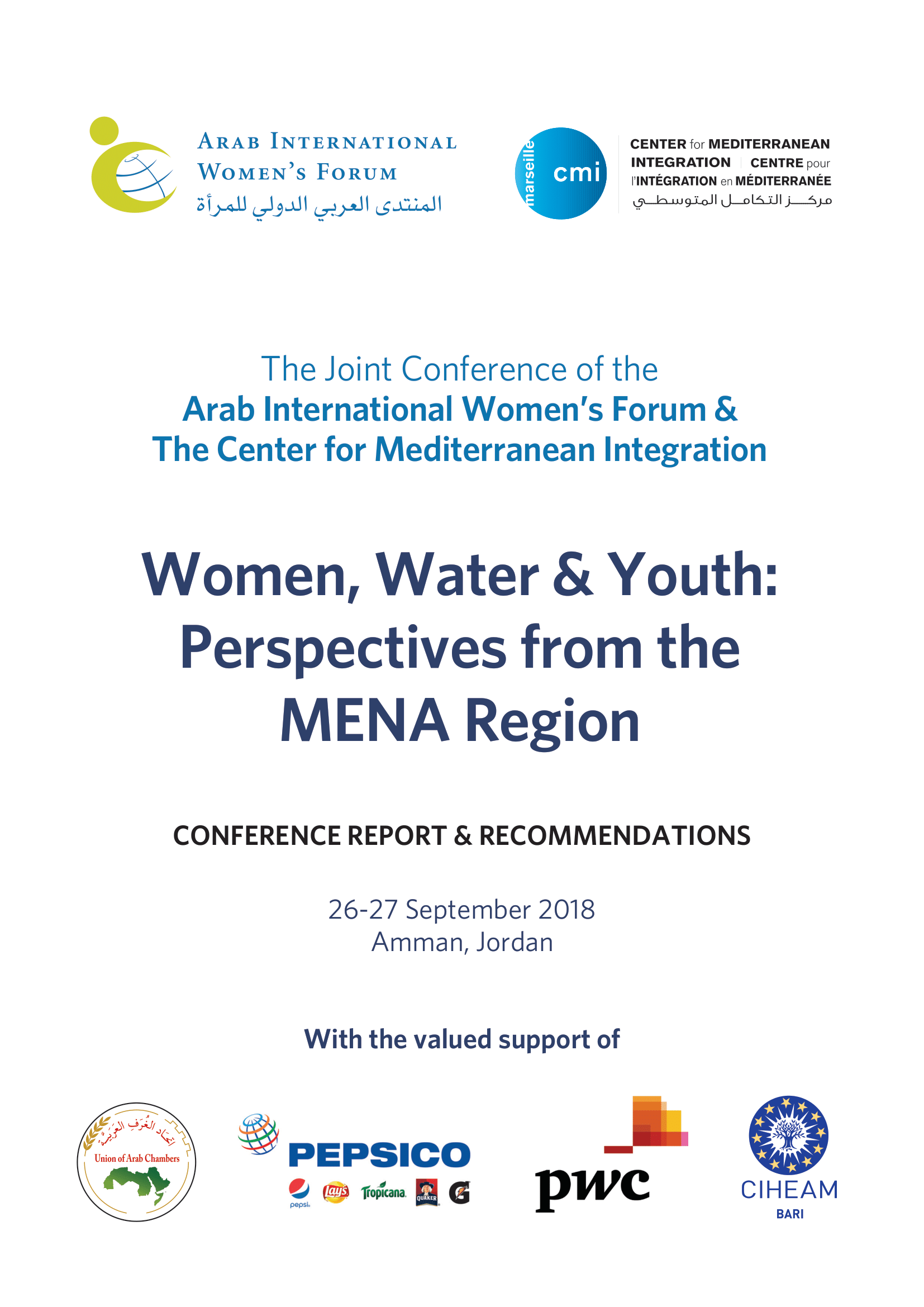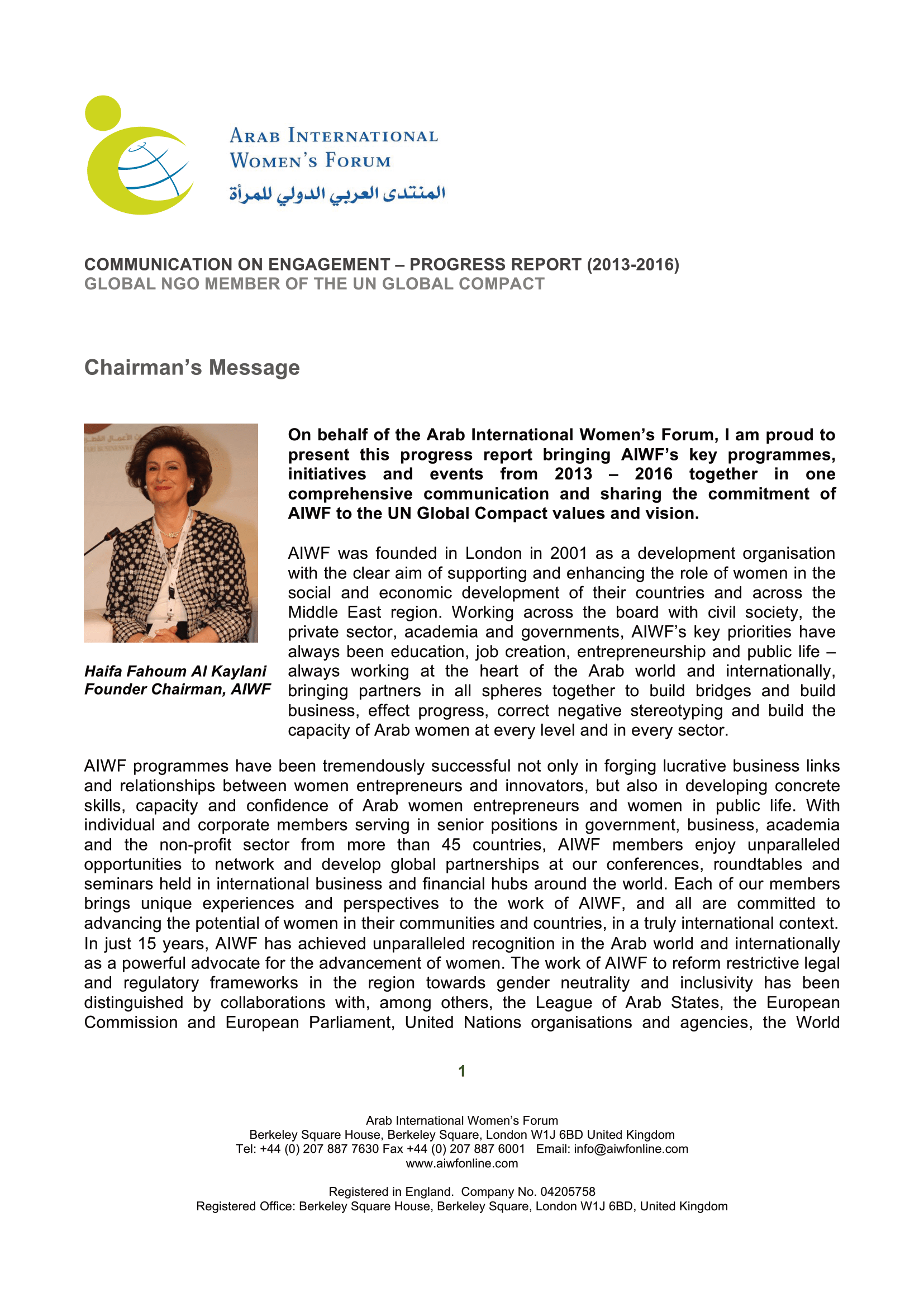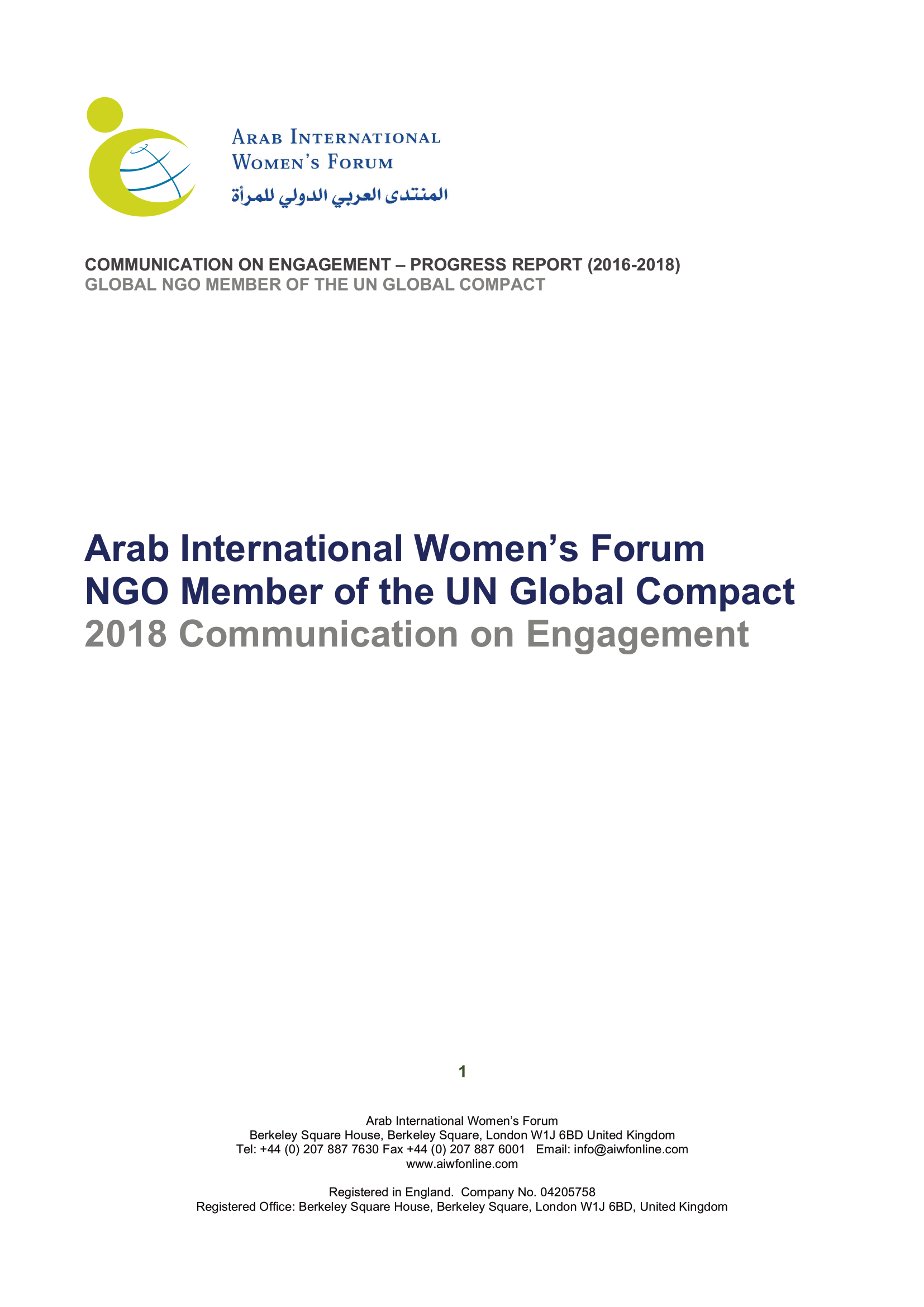Over two decades, AIWF has built a powerful global advocacy and communications network to action change and promote solutions to development challenges
With an international, cross-sector contact base of over 15,000 business and institutional leaders around the world, our initiative outcomes, key publications, reports and newsletters featuring Partner and Member milestones are regularly shared with thousands of key contacts in the MENA Region, Europe, the United States, the United Kingdom, and Asia.
AIWF communications are widely circulated to these valued stakeholders and supporters in the international business, diplomatic, academic, and development communities, including key international organisations within AIWF’s advocacy network (such as the ILO, World Bank, the UN Organisations and agencies, the European Bank for Reconstruction and Development, the OECD, the Union of Arab Chambers, and others).
In recent years, AIWF has published a series of high-level reports with key partners including Masdar’s Women in Sustainability, Environment & Renewable Energy (WiSER) initiative and with Pfizer Middle East, a longstanding AIWF Global Corporate Partner.
AIWF Conference Reports & Recommendations
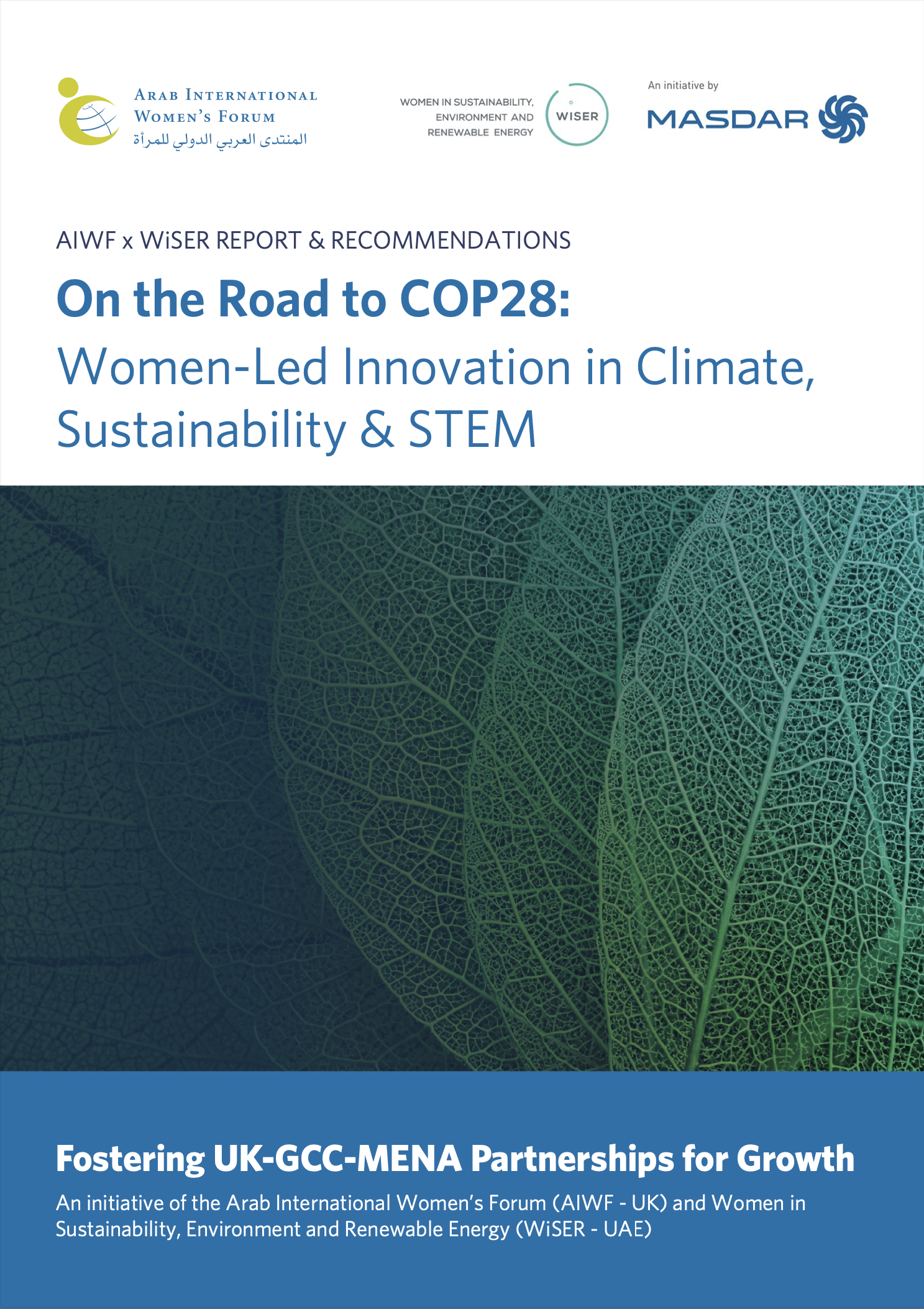
‘On The Road to COP28’ is a unique and inclusive initiative of AIWF and WiSER to facilitate new collaborations supporting SDG17 (‘Partnerships for the Goals’). It ensures women’s voices are front and centre in global conversations about climate action, food security, water resilience, clean energy, the future of work, responsible business, financing sustainability and innovation, and technology and the digital economy. This report was jointly published by AIWF and WiSER in November 2023 and duly presented to the COP28 leadership team in the United Arab Emirates that year.
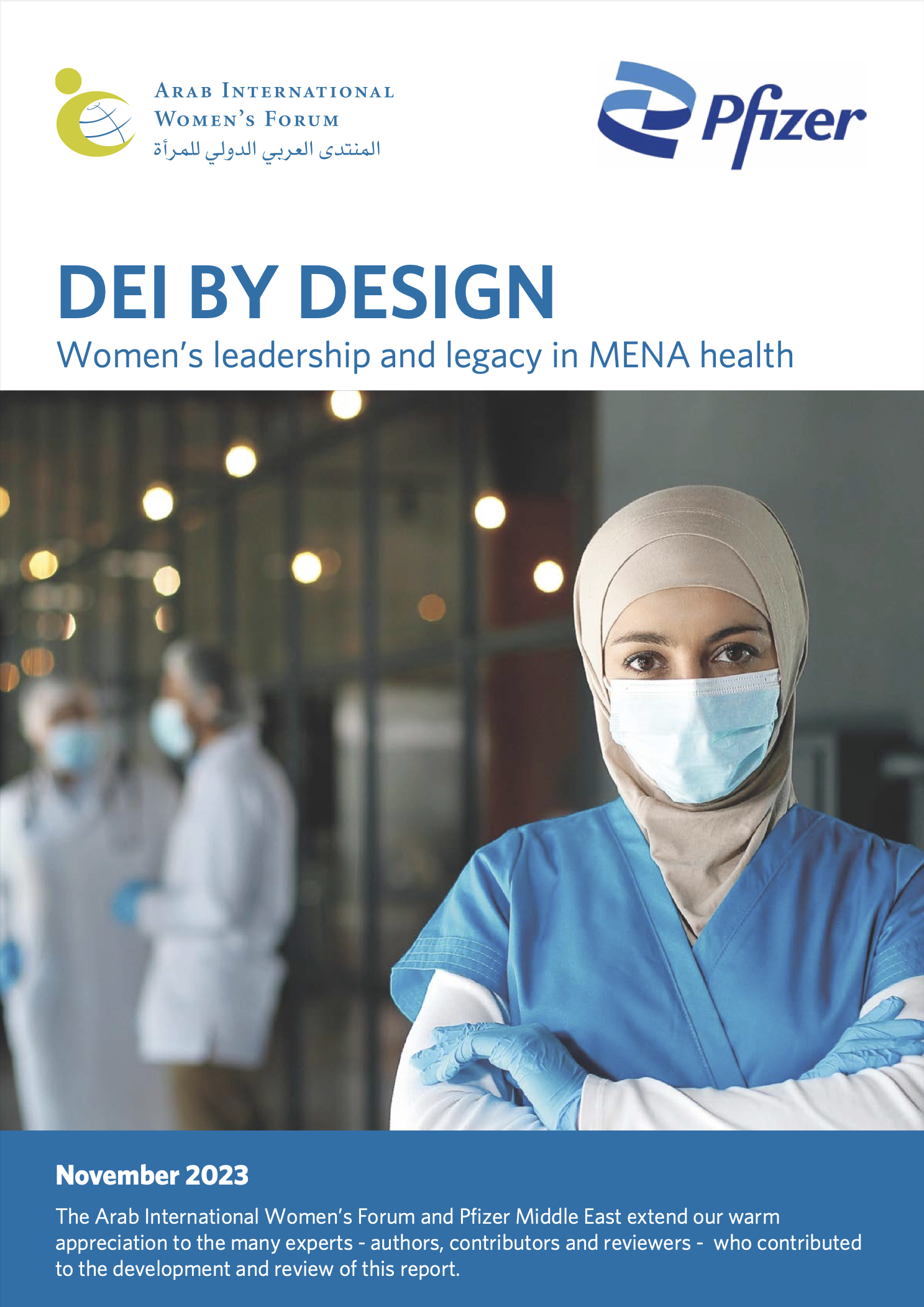
‘DEI By Design‘, published jointly with our Global Corporate Partner Pfizer Middle East in November 2023, explored women’s leadership and legacy in MENA health. The pandemic highlighted the invaluable contributions of women in the healthcare sector yet exacerbated inequalities for women in the region. ‘DEI by Design’ called for private and public organizations to lift up women in the health sector, especially in representation, research, and conflict-resolution.


